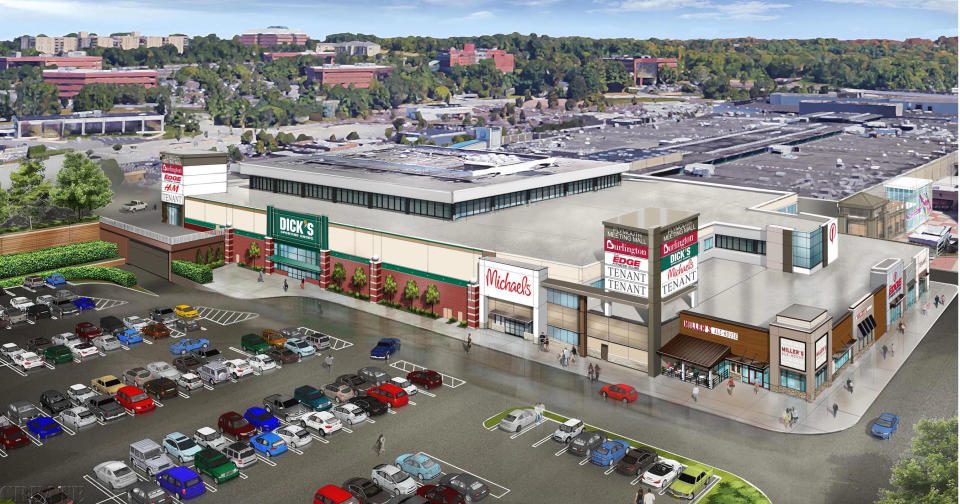This REIT Yields 15.3% -- and Its Turnaround Is Working
Last month, I argued that Pennsylvania Real Estate Investment Trust (NYSE: PEI) shares appeared to be dramatically undervalued. As I noted at the time, investors' skepticism about PREIT's prospects -- as reflected in its ultrahigh dividend yield of nearly 15% -- was not consistent with the facts.
PREIT now trades at an even sharper discount to the rest of the market. By the end of the day on Wednesday, shares of the retail REIT were trading at their lowest level in nearly a decade and yielded a whopping 15.3%. Yet investors recently got more confirmation that PREIT's strategy is working, which bodes well for a return to growth in its key earnings metrics starting next year.
A transformation is underway
Five years ago, PREIT was one of several mall REITs focused primarily on midtier malls. Around then, management decided to aggressively reposition the company's real estate portfolio, recognizing that many malls were likely to become obsolete in the coming years.
While peers like Washington Prime (NYSE: WPG) have mainly tried to preserve cash flow with incremental moves, PREIT has gotten rid of nearly half of its properties since early 2013. The properties it sold (or returned to lenders) generally were in small markets, had weak anchors, and were suffering from declining sales productivity. Meanwhile, PREIT has also invested huge sums on redeveloping its remaining properties, replacing struggling department stores with new tenants that will pay higher rents while driving more traffic to those malls.

PREIT has invested heavily in replacing department stores with better-performing retailers. Image source: PREIT.
As a result, sales per square foot for PREIT's malls has surged from $394 in 2014 to $491 last year -- and $510 excluding non-core malls that are on track to exit PREIT's portfolio in the years ahead. Over the same period, Washington Prime's malls posted a much smaller increase in sales per square foot, going from $346 in 2014 to $377 in 2018.
The strategy is working
Last week, a new research report from geolocation intelligence firm Thasos gave investors the best evidence yet that PREIT's strategy is working. The report ranks mall REITs based on six factors: traffic growth; loyalty; and the average household income, home values, education level, and household density near their properties.
Incorporating all of these metrics, PREIT's score was squarely in the middle of the pack. It even edged past Simon Property Group, which is generally recognized as one of the strongest mall REITs in the country. By contrast, Washington Prime ranked No. 7, ahead of only lowly CBL & Associates.
Furthermore, traffic growth is clearly the most important of the metrics tracked by Thasos, as it is the most direct indicator of whether a property is successful. PREIT trailed only high-end mall operator Westfield on this metric, with a 1.4% year-over-year increase during the late-2018 measurement period. By contrast, traffic plunged 5.2% at Washington Prime's malls.
Expect further gains ahead
These statistics indicate that PREIT's strategy of focusing on its best malls and investing to make those properties even better is helping it weather the retail apocalypse better than peers. Indeed, PREIT is well-positioned to achieve further traffic increases in the years ahead.
While PREIT has completed several redevelopment projects in the past two years, it has far more currently in progress. At five of its 21 malls, PREIT is in the midst of replacing department stores that have closed in the past few years with more promising tenants, skewing toward fitness, entertainment, dining, and other non-apparel uses.
Thus, PREIT achieved the second-highest traffic growth among mall REITs in late 2018 despite a quarter of its malls being under construction. As those redevelopment projects wrap up and the new tenants open for business, traffic growth should accelerate. PREIT's plans to dispose of three of its most troubled properties (designated as noncore malls) will also help, as those malls have been weighing down its performance lately.
Higher traffic won't lead to big increases in PREIT's net operating income right away. But over time, it will give PREIT the ability to demand higher rents. That will allow it to maintain or even raise its generous dividend -- and drive stellar gains for long-term investors.
More From The Motley Fool
Adam Levine-Weinberg owns shares of Pennsylvania REIT. The Motley Fool has no position in any of the stocks mentioned. The Motley Fool has a disclosure policy.
